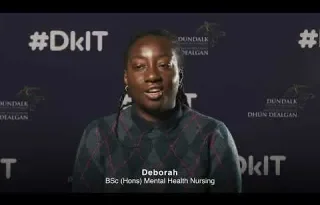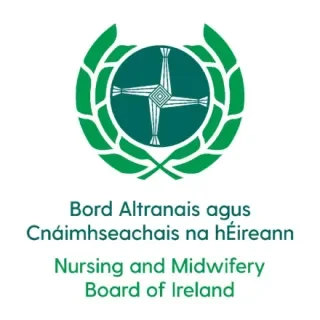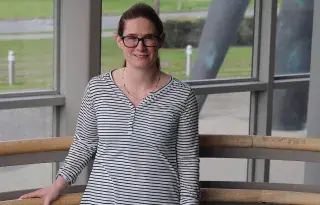BSc (Hons) in Mental Health Nursing

Search to find a different course
Course Overview
Over the duration of the course, students will develop the knowledge, skills and attitudes to care for people experiencing mental health challenges. Student’s academic and clinical knowledge will be developed using simulated learning environments and modern learning spaces. Students gain their clinical experience in a diversity of clinical placements, caring for people experiencing mental health challenges. Mental health nursing clinical placements account for fifty percent of this course. In preparation for clinical placement students attend practical classes in the Clinical Skills Laboratory.
What makes this course different
Professional Accreditation
Graduates will be eligible for professional registration as a Psychiatric Nurse (RPN) with the Nursing and Midwifery Board of Ireland (NMBI).
Placements Each Year
Clinical practice placements in each year and a 36-week internship placement in Year 4.
Graduate Success
93% of graduates are in full-time employment after 6 months of graduating - (DkIT/HEA Graduate Survey)
Understanding the Industry
At the heart of the role of the mental health nurse is the ability to establish therapeutic relationships with people and their families. The mental health nurse facilitates the maximum development of the mental health of the person, and to promote mental health in the wider community. In partnership with the person, they support them through empathetic care, allowing them to live a full and purposeful life while respecting their dignity and rights.
Career Opportunities
Future Careers:
- Mental Health Nurse
In these areas:
- Community mental health services or community mental health residential services
- Home care
- Outpatients’ department
- Mental health units
- Mental health intensive care units
- Private healthcare companies
- Mental health charities
- Forensic mental health services
- Addiction services
- Eating disorder services
- Homeless service
Course Delivery and Modules
The programme is delivered through time in college and time in clinical sites. While in college, the learning strategies include lectures, group work, practical labs, presentation and role-play. Clinical learning involves being supervised by a qualified nurse while engaging with people with mental health difficulties.
- Safe Healthcare Practice 1
- Transition Support and Skills for Success
- Mental Health Illness & Disorders 1
- Mental Health recovery 1A
- Natural Sciences for Nursing
- Practice Placement Mental Health 1
- Clinical Skills in Mental Health 1
- Mental Health Recovery 1B
- Natural Sciences for Intellectual Disability and Mental Health Nursing
- Practice Placement 2 MH
- Psychology and its application to practice
- Learning to Learn Skills for Success
- Therapeutic Relationships and Alliances
- Care of the Older Person MH
- Mental Health Illness and Disorders 2
- Practice Placement 3 MH
- Psychopharmacology
- Sociology and its application to practice within Mental Health
- Theoretical Approaches in Mental Health Nursing
- Addressing the Physical Health Needs of Services Users
- Care of the Younger Person
- Clinical Skills in Mental Health 2
- Exploring the Evidence
- Practice Placement 4 MH
- Advancing Recovery
- Clinical Skills in Mental Health 3
- Cultural Connections
- Exploring Mental Health Therapies
- Practice Placement MH 5
- Quality, Risk and Safety in Healthcare
- Psychotherapeutic Approaches
- Critiquing the Evidence
- Ethical and Legal Practice MH
- Mental Distress
- Practice Placement MH 6
- Trauma and Trauma informed Practice
- Applying the Evidence
- Leadership and Management in Mental Health Nursing
- Practice placement MH 7 PR 2025
- Social Justice in Mental Health
- Teaching and Assessing in Mental Health Nursing
- Internship MH
Work placement
Clinical placements occur in each year of the programme, each placement building up the clinical competence of the student to become a Registered Psychiatric Nurse. In 4th year, students undertake a 9-month internship clinical placement and are employed and paid by the HSE as part of the service.
Professional Accreditations
Graduates will be eligible for professional registration as a Psychiatric Nurse (RPN) with the Nursing and Midwifery Board of Ireland (NMBI).

Education Progression
Graduates are also qualified to apply for a range of postgraduate programmes in nursing such as the Postgraduate Cert/Diploma/ MSc in Specialist/Advanced Nursing.
MSc in Community Mental Health Nursing
MSc in Professional Practice: Professional Management of Complex Behaviour in Clinical Practice
Fees and Funding
Please find information on fees and funding here: www.dkit.ie/fees
Entry requirements
In addition to the standard entry requirements below, a Laboratory Science subject at Grade O6 or H7 is also required. Applicants from NI/UK require a GCSE pass in a Laboratory Science subject (Biology, Chemistry or Physics) or GCSE Grade CC in Double Award Science. Single award GCSE Science is not applicable.
- Standard Requirements for Leaving Certificate Applicants
- Standard Requirements for UK/NI Applicants
- Standard Requirements for QQI-Further Education Applicants
- Mature Applicants: Minimum of 23 years of age on January 1st of year of application. The PAS carries out an assessment test on behalf of NMBI. Visit NursingCareers.ie for more information.
Please Note: Offers subject to successful Garda Clearance and Health Status Clearance from the Health Service Executive (North East) Occupational Health Unit. Students on the course are also subject to fitness-to-practice regulations.
Recent CAO points
How to apply
Apply on CAO
All standard entry first-year applicants must apply for entry through the CAO. See Important application dates for CAO and information for specific applicant types below:
Advanced Entry & Transfer Applications
Advanced Entry is for applicants who have previous educational achievements and/or work experience and want to be considered for direct entry into year 2, 3, or 4 of a course. This includes students looking to transfer to DkIT from another Higher Education provider.
Ask us a Question
If you have a question about the BSc (Hons) in Mental Health Nursing please ask it below and we will get back to you.
Disclaimer: All module titles are subject to change and for indicative purposes only. All courses are delivered subject to demand and timetables are subject to change. Elective Module options will only run subject to student numbers. The relevant Department will determine the viability of each elective module option proceeding depending on the number of students who choose that option. Students will be offered alternative elective modules on their programme should their preferred elective option not be proceeding. Award Options for Common Entry Programmes: The relevant Department will determine the viability of each award option proceeding depending on the number of students who choose either option. If the numbers for one of the Award options exceed available places, students for this option will be selected based on Academic Merit (highest grades).




